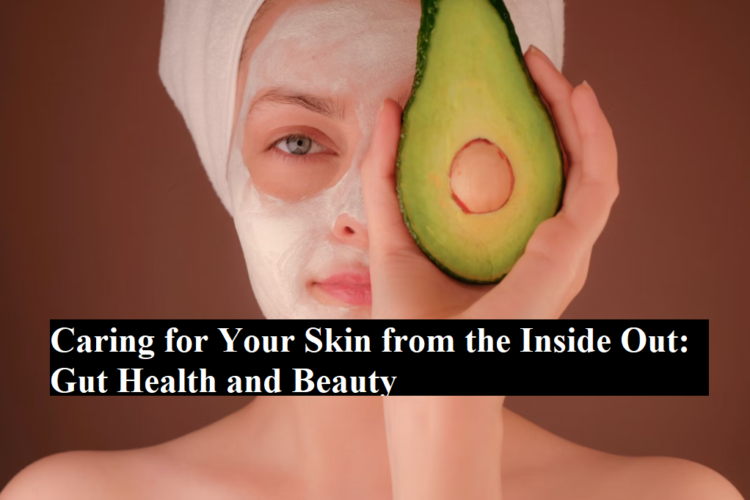While many people who are new to skincare assume that topical application is the most effective way to maintain and care for their skin, experts say you can get better results by treating your skin from the inside out. When you focus on internal care, you treat your skin on a cellular level to ensure your body performs its best.
Curious how you can take advantage of this skincare method? Learn more about the best ways to care for your skin from the inside out here.
Hydrate, Hydrate, Hydrate

You’ve been hearing that you need to drink lots of water for ages, but hydration is for more than just general health! Drinking water is essential to supporting skin hydration and moisture. Striving for around nine cups of water per day can actually increase your skin’s thickness and density so it stays elastic and endures external pollution more easily.
Support Your Gut
There are a variety of microbiomes in your body, including your skin and gut microbiome. Each one plays its own role in your health. For example, a weak skin biome can’t effectively protect you from infection, sun damage, and other stressors. If you want to nurture your microbiome, you can use topical serums and creams to enhance your skin barrier, but you can also support your gut biome.
Research shows that your gut and skin biomes are connected, so it’s equally important to support both. The gut-skin axis is based on the permeable lining of your gut. When your gut flora isn’t balanced, anything you eat or drink can leak out and cause inflammation throughout your entire body. If your gut is healthy, it properly digests incoming nutrients and sends them to the right places.
Read: How Niacinamide Serum Helps to Reduce Open Pores
Avoid Inflammatory Triggers

Inflammation isn’t just what happens when you sprain your ankle. It can also result from external contaminants, food and beverages, and trauma. When inflammation permeates your body, you get premature aging and reactive skin, which can result in acne breakouts, eczema, and rashes. While inflammation is trying to heal whatever is causing you irritation, it can also keep your body in a state of oxidative stress, leading to more damage over time.
Inflammation can also result in free radicals that can cause progressive inflammation, directing your immune cells to damaged areas and creating even more oxidative stress and injury on a cellular level. Many foods can trigger inflammatory reactions, especially if you have a leaky gut, but lack of sleep, pollution, and allergens are also responsible.
Once you know your inflammatory triggers, you can address them, reducing stress on your skin cells. If you’re allergic to dairy or pollen, you can avoid these foods or take allergy meds to prevent a reaction. Is lack of sleep an issue for you? Work on building a routine that prioritizes rest.
Introduce Antioxidants
One of the best ways to combat oxidative stress and free radicals is to consume antioxidants. There are both topical and internal antioxidants that can help you target specific areas of your skin, as well as provide systemic benefits. Some foods have a ton of antioxidants, like berries, avocados, carrots, nuts, and salmon, but you can also take supplements with antioxidants.
If you prefer supplements, look for products that contain
- Astaxanthin: This antioxidant can protect the skin’s collagen layer to reduce fine lines and age spots. It can also combat UV photodamage.
- Vitamin A: A vitamin that’s essential for skin repair, vitamin A targets free radical damage caused by sun exposure.
- Vitamin C: Powerful because it’s water soluble, vitamin C encourages collagen production and stabilizes existing collagen.
- CoQ10: This coenzyme exists throughout your entire body, but you always need more of it to combat damage caused by oxidative stress.
- Black cumin seed: Known as Nigella Sativa, black seed contains thymoquinone. This nutrient is documented to contain extremely high levels of antioxidants.
Many of these antioxidants already exist in your body and food, but you need to resupply your body as it uses them up.
Eating Right

What you eat and how you live your life does indeed affect the way your skin cells work. If glowing, healthy skin is a priority for you, caring for your skin on a cellular level is an essential part of your skincare routine. You can make lifestyle changes to ensure you get more sleep and eat healthy foods, but you should also try to find supplements that can help you achieve your goals in a more effective way.
Whether you choose black seed capsules or a multivitamin with vitamins A and C, supplements make your life easier and take the guesswork out of getting the right nutrients in the right amounts.

